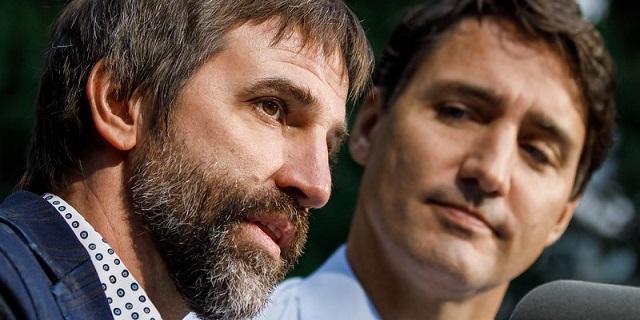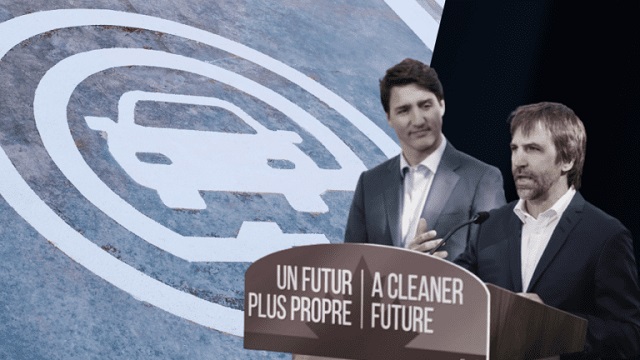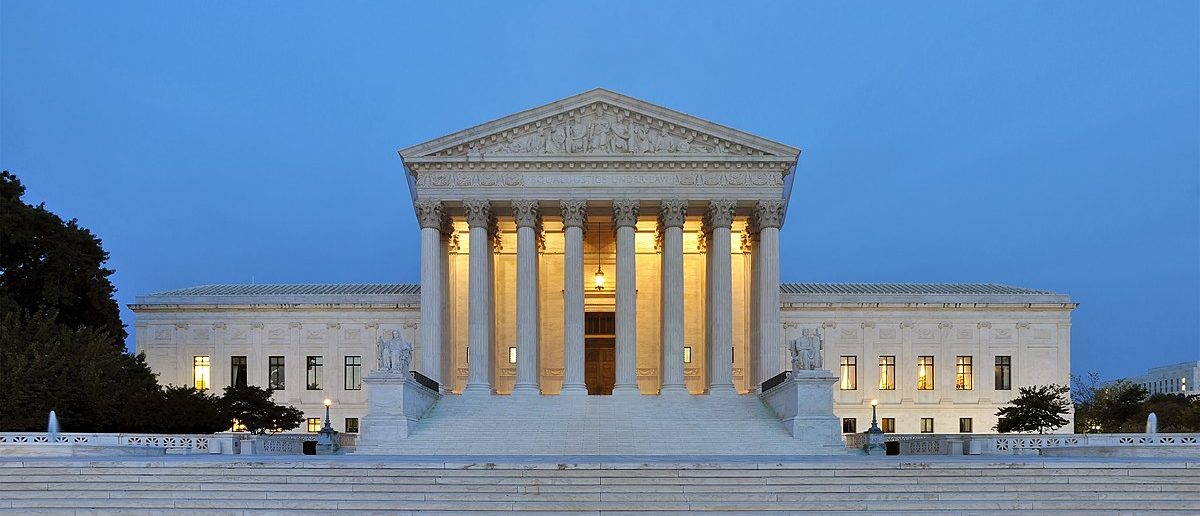National
Federal government touts climate ‘crisis’ without sufficient supporting evidence

From the Fraser Institute
Canada is, we are told, in a climate crisis. “Climate action can’t wait,” said Prime Minister Trudeau. “Together, we will beat this crisis while creating a green economy and new middle-class jobs for Canadians.” In a Guardian article, federal Environment Minister Steven Guilbeault said “the science is clear” that the “climate crisis is the biggest single threat we face as a global community.” And of course, the government’s new “Raising the Bar” campaign is very alarming, particularly the stuff about droughts and floods.
But have we seen significant increases in weather extremes? Is the strength of evidence sufficient to justify the panic-mongering language of a “climate crisis?” In a nutshell, no.
Let’s start with drought. The vaunted UN Intergovernmental Panel on Climate Change (IPCC) asserted “medium confidence” that increased drought has been observed across the globe. And in the Royal Society, one of oldest scientific academies on Earth, an international research team dug into the data only to find that in the “vast majority of the world, trends in meteorological drought duration and magnitude are not statistically significant, with the exception of some small regions of Africa and South America, which is also where data uncertainty is greater” concluding that “trends in meteorological drought severity in the last few decades are not observed globally based on precipitation data, and very few areas are showing changes in the severity of meteorological droughts.” Finally, according to the International Energy Agency, drought severity in Canada from 2000 to 2020 was only slightly above the global average.
Well, but what about floods?
Canada has plenty of those. The IPCC report finds it “likely” that heavy precipitation events (a major cause of flooding) have increased globally, at least over land areas with good data. The report has less confidence in places such as Africa and South America where we’re reminded the people are at higher risk from climate change because they’re poorer and less likely to adapt. But a 2017 report of the United States Global Climate Research Project found that while “detectable changes in some classes of flood frequency have occurred in parts of the United States” there’s no “significant connection of increased riverine flooding to human-induced climate change, and the timing of any emergence of a future detectable anthropogenic change in flooding is unclear.” Further, a recent UN report found with “high confidence” that “streamflow trends since 1950 are not statistically significant in most of the world’s largest rivers, while flood frequency and extreme streamflow have increased in some regions.” Does that sounds like a crisis?
The Trudeau government’s climate rhetoric has steadily ratcheted up over years, and settled on the panic-inducing language of “crisis.” We must follow government’s energy-diet, live smaller, less prosperous lives in less space, with less travel, and less, well, everything. Of course, the crisis rhetoric allows for no doubts, being absolutist in its claims that we are—right now—experiencing major increases in natural disasters fuelled by human-sourced greenhouse gas emissions.
But clearly, the scientific literature on extreme weather does not support this rhetoric. The actual data on extreme weather is scant, fragmented, contradictory and in all ways uncertain. It’s certainly not rigorous enough to justify the kind of exaggerated certainty Ottawa asserts nor the induction of climate panic.
Author:
Business
Senator wants to torpedo Canada’s oil and gas industry

From the Fraser Institute
Recently, without much fanfare, Senator Rosa Galvez re-pitched a piece of legislation that died on the vine when former prime minister Justin Trudeau prorogued Parliament in January. Her “Climate-Aligned Finance Act” (CAFA), which would basically bring a form of BDS (Boycott, Divestment, and Sanctions) to Canada’s oil and gas sector, would much better be left in its current legislative oblivion.
CAFA would essentially treat Canada’s oil and gas sector like an enemy of the state—a state, in Senator Galvez’ view, where all values are subordinate to greenhouse gas emission control. Think I’m kidding? Per CAFA, alignment with national climate commitments means that everyone engaged in federal investment in “emission intensive activities [read, the entire oil and gas sector] must give precedence to that duty over all other duties and obligations of office, and, for that purpose, ensuring the entity is in alignment with climate commitments is deemed to be a superseding matter of public interest.”
In plain English, CAFA would require anyone involved in federal financing (or federally-regulated financing) of the oil and gas sector to divest their Canadian federal investments in the oil and gas sector. And the government would sanction those who argue against it.
There’s another disturbing component to CAFA—in short, it stacks investment decision-making boards. CAFA requires at least one board member of every federally-regulated financial institution to have “climate expertise.” How is “climate expertise” defined? CAFA says it includes people with experience in climate science, social science, Indgineuous “ways of knowing,” and people who have “acute lived experience related to the physical or economic damages of climate change.” (Stacking advisory boards like this, by the way, is a great way to build public distrust in governmental advisory boards, which, in our post-COVID world, is probably not all that high. Might want to rethink this, senator.)
Clearly, Senator Galvez’ CAFA is draconian public policy dressed up in drab finance-speak camouflage. But here’s what it would do. By making federal investment off-limits to oil and gas companies, it would quickly put negative pressure on investment from both national and international investors, effectively starving the sector for capital. After all, if a company’s activities are anathema to its own federal regulators or investment organs, and are statutorily prohibited from even verbally defending such investments, who in their right minds would want to invest?
And that is the BDS of CAFA. In so many words, it calls on the Canadian federal government to boycott, divest from, and sanction Canada’s oil and gas sector—which powers our country, produces a huge share of our exports, and employs people from coast to coast. Senator Galvez would like to see her Climate-Aligned Finance Act (CAFA) resurrected by the Carney government, whose energy policy to-date has been less than crystal clear. But for the sake of Canadians, it should stay dead.
Automotive
Opposition Conservatives fail in attempt to “Pull the Plug” on Carney’s Electric Vehicle Mandate

From Conservative Party Communications
After a Lost Liberal Decade of rising costs and slow growth, Mark Carney wants you to think his government has moved on from Justin Trudeau’s failed policies.
Unfortunately for Canadians, Carney has no interest in scrapping one of his predecessor’s most reckless and costly ideas: a zero-emissions vehicle (ZEV) mandate starting next year that will ultimately ban Canadians from buying gas-powered cars by 2035.
As the required percentage of ZEV sales increases each year, the government wants to force manufacturers and importers to buy costly credits of up to $20,000 for every EV they are short of the Liberals’ quota – a huge expense that will ultimately be passed on to, and paid by Canadian consumers.
That’s why Conservatives have introduced a motion to end this harmful scheme, ensuring Canadians can continue to buy the kind of car they need at a price they can afford.
EVs are great for many families, who should always be free to purchase the vehicle of their choice. But for many Canadians – who live in cold environments or travel long distances – they can be practically useless, especially without the infrastructure to power them.
One government report estimated that changes to Canadian infrastructure required to support a transition to ZEVs could cost up to $300 billion by 2040. On top of the costs already imposed on manufacturers and buyers, this policy will require billions in new tax dollars and government debt.
No wonder one 2024 survey found two thirds of Canadians find the 2035 target is unrealistic.
As unjust tariffs threaten an automotive sector which contributes billions to our GDP, the Liberals continue to put their elitist, top-down ideology ahead of the livelihoods of hundreds of thousands of proud Canadian workers.
While Carney talks about change, Conservatives are here to deliver. That’s why we’re fighting to repeal the ZEV mandate, scrap the industrial carbon tax and cancel Liberal fuel standards. We trust Canadians – not Ottawa’s Liberal elite – to make the best decisions for themselves and their families.
It’s time to put Canadians back in the driver’s seat.
-

 Alberta2 days ago
Alberta2 days agoCalls for a new pipeline to the coast are only getting louder
-

 Daily Caller21 hours ago
Daily Caller21 hours agoUnanimous Supreme Court Ruling Inspires Hope For Future Energy Project Permitting
-

 Alberta2 days ago
Alberta2 days agoUnified message for Ottawa: Premier Danielle Smith and Premier Scott Moe call for change to federal policies
-

 Censorship Industrial Complex2 days ago
Censorship Industrial Complex2 days agoJordan Peterson reveals DEI ‘expert’ serving as his ‘re-education coach’ for opposing LGBT agenda
-

 espionage15 hours ago
espionage15 hours agoFBI Buried ‘Warning’ Intel on CCP Plot to Elect Biden Using TikTok, Fake IDs, CCP Sympathizers and PRC Students—Grassley Probes Withdrawal
-

 Business2 days ago
Business2 days agoRhetoric—not evidence—continues to dominate climate debate and policy
-

 Business2 days ago
Business2 days agoCanada’s economic pain could be a blessing in disguise
-

 Agriculture15 hours ago
Agriculture15 hours agoUnstung Heroes: Canada’s Honey Bees are not Disappearing – They’re Thriving




